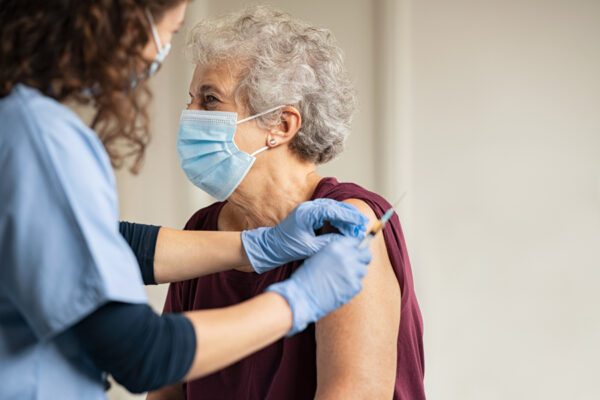By: Dan Galos, CWCA, AFIS, SBCS – Sales Executive / Risk Advisory Solutions
“I make treats for my dog all the time. I share them with my neighbors, and their pets love them too! I bet I can sell these and start a business!”
Now is an excellent time to be in the pet food industry. Consumers are spending more than they ever have on their pets, and the variety of products in the market is like nothing we have seen before. For instance, from a study done by the Pet Food Institute, research calculated Americans spent $70 billion on pets in 2017. That $70 million was a $16 billion increase from 2016, with predicted calculations indicating the same, if not more, growth through 2019. As this trend continues to grow, more and more people are starting their own pet food companies. Starting your own pet food business is an awesome experience to undertake! I love to hear the stories and the passion my customers and colleagues have for their start-ups.
“Pet food and treats are highly regulated products.”
TRUE!: Manufacturing and labeling are both highly regulated and can be very tricky. Here is a quick break down of the relevant entities:
- The Food and Drug Administration (FDA) oversees the pet food industry. Their duties include inspecting manufacturing facilities and suppliers of ingredients; helping to develop laws and requirements around pet food and animal feed; investigating pet food claims brought on by consumers; and other responsibilities.
- The United States Department of Agriculture (USDA) does not have direct regulatory authority over pet food. They can assist in investigations within their jurisdiction (i.e., meat products derived from a USDA inspected facility are subject to USDA authority up until the point that the meat becomes “pet food”).
- The AAFCO (Association of Animal Feed Control Officers) advises over the pet food industry. It does not have any regulatory powers, and the association cannot ban or approve products. The organization exists to help recommend standards in nutrition and provide guidelines for manufacturers and labelers.
Further complicating things is the fact that every state has its own Department of Agriculture, which regulates the production and sale of pet food in its jurisdiction. All new pet food products must register in each state in which it will be sold.
From a labeling standpoint, ingredient lists, guaranteed analysis, manufacturer’s information, product name, and many other items have precise wording. Make sure to research your state’s laws and contact an attorney to verify all text and labeling meets correct standards.
“I don’t need to be licensed to sell my pet treats at a Farmer’s Market.”
FALSE!: There are specific regulations by each state that pertain to the sale of pet treats at farmer’s markets.
Furthermore, while selling products on the internet can be a great way to grow your business, those sales must be limited to the states in which your company is registered. Unfortunately, there is no sole entity that approves for all states. Before selling to all the hungry customers out there, please make sure you have all the paperwork in place!
“I can make pet food and pet treats from my home kitchen.”
TRUE!: ***BUT WAIT. *** If you intend to distribute the products, then you must comply with state licensing, product registration, and labeling. You should also comply with Good Manufacturing Practices (GMPs) to ensure product quality and consistency.
It is critical to know that these regulatory entities are not just monitoring commercially sold products; they regulate any product that is “distributed” includes “given away.”
“My homeowner’s insurance will cover me against potential product liability claims.”
FALSE!: A homeowner’s insurance policy does not cover business activities or claims related to your profession. To help protect your company against liability claims, you will need a Commercial General Liability policy or what is known as a BOP (Business Owner’s Policy). This policy will provide coverage for third party claims, including product liability. Not all policies cover PRODUCT LIABILITY! For a pet food company, product liability is the most critical part of your insurance policy. Call one of our experts or fill a general business insurance quote form to begin your way to ensure proper coverage!
“I do not need Product Recall coverage; my business insurance policy covers that.”
FALSE!: Product Recall is explicitly excluded from a General Liability policy. While your policy may include “products withdrawal” coverage, this is not the same as a Recall policy. A Product Recall policy will help pay for third party damages or legal fees, whereas a General Liability policy will not.
The General Liability’s “products withdrawal” coverage is only for first-party protection to cover out-of-pocket expenses to the company.
A product recall policy covers both first party and third-party expenses. First party expenses are those that your company incurs. These can include the cost of notification to customers, shipping costs, warehouse and storage expense, the cost to dispose product, and others. Third-party coverage would protect against costs including recall expenses of a third party that incorporates your product such as costs to replace products; business interruption losses of others caused by your product recall; and costs to restore third party brand reputation.
If you either sell products that are under the label/name of another company (co-manufacturing) or is a component of yet another product, third party coverage is essential.
One interesting thing to note, you do not have to get a recall for the total sales of your company. You can build a program for a specific group of products or a single supplier/customer; there are many options to explore.
Bringing It All Together
Starting a business in any industry can be daunting. Be sure to research extensively before making any business decisions and always reach out to industry professionals for guidance, whether that be legal advice, insurance, risk management, or food regulation.
My puppy, Baloo, waiting for me to finish this article so I can give him some treats!
Material posted on this website is for informational purposes only and does not constitute a legal opinion or medical advice. Contact your legal representative or medical professional for information specific to your legal or medical needs.


